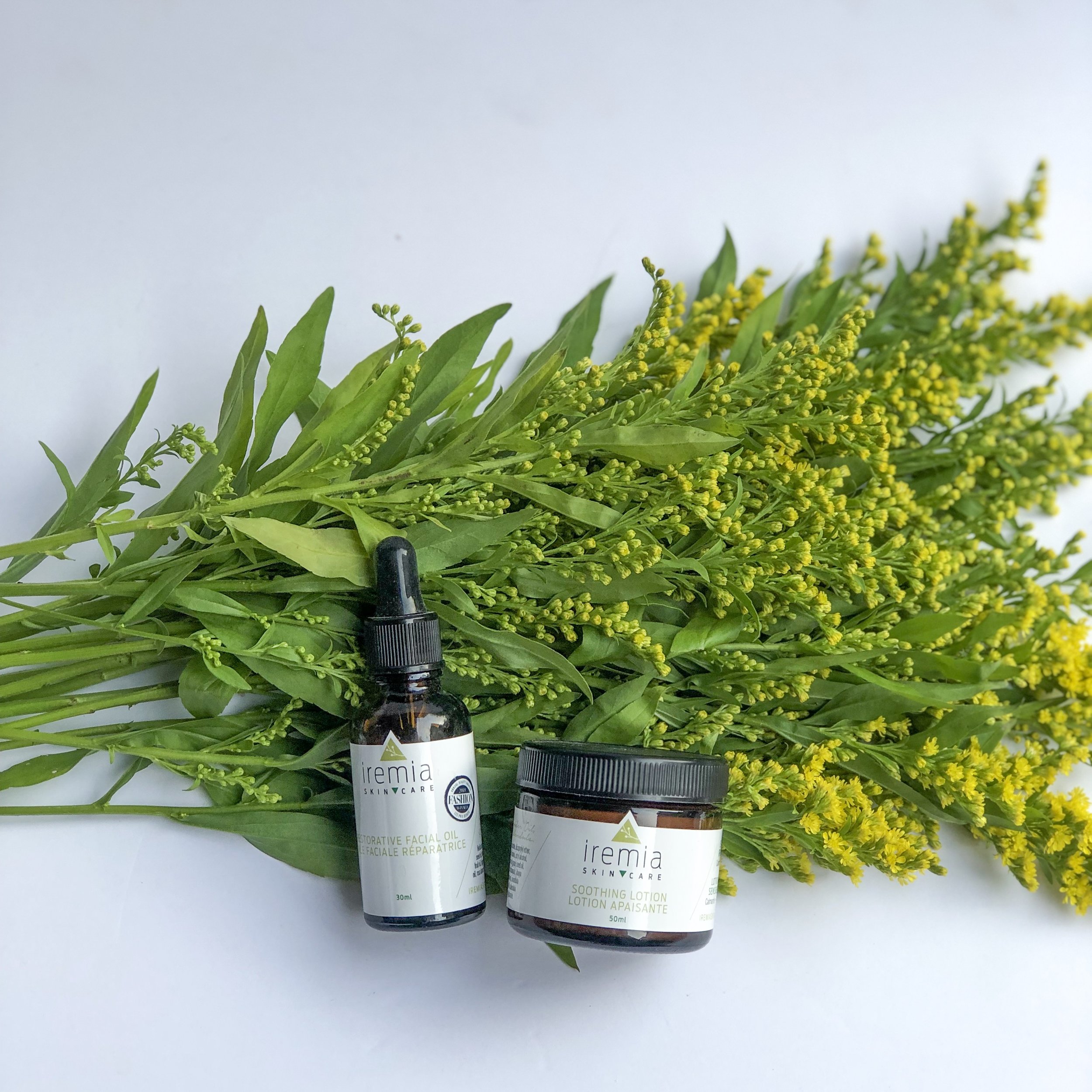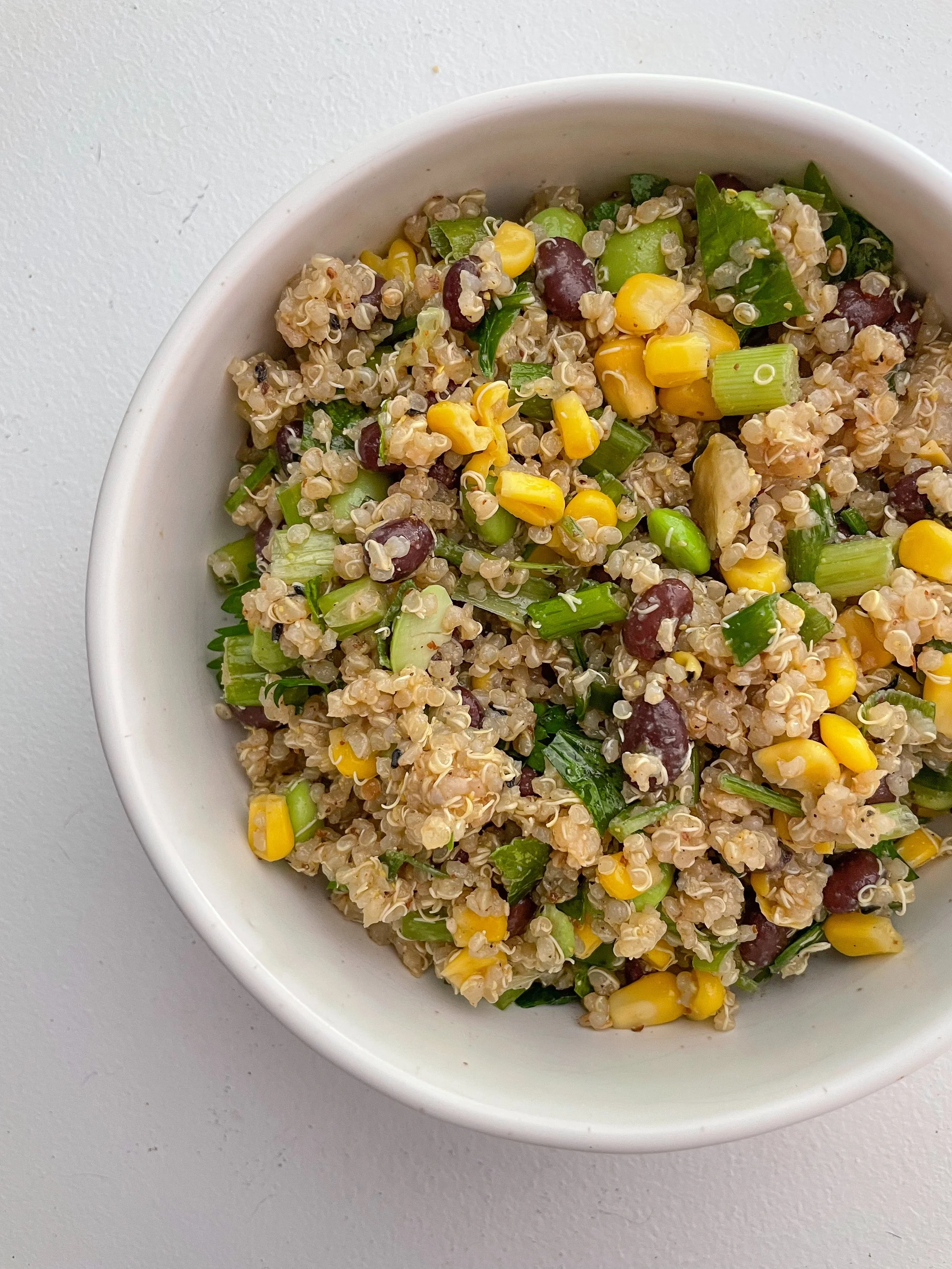The Connection Between Your Diet and Inflammation - Bruce's Roots Wellness
THIS IMPACTS YOUR SKIN HEALTH TOO
WHAT IS INFLAMMATION?
Inflammation is our bodies immune system’s responding to any ill-treatment, it’s a defense mechanism to a threat. There are five symptoms of inflammation and they’re often referred to in the holistic nutrition world as SHARP: swelling, heat, altered function, redness, pain. The immune system often causes an inflammatory response as a way to send more white blood cells (WBC) to the area to keep it localized and avoid it spreading. The body often feels the pain and sees the swelling, which inhibits movement making it easier for the body to rest and heal. Acute inflammation helps the tissue repair, however, we don’t want to stay in an inflammatory state for long periods of time.
WHAT ABOUT CHRONIC INFLAMMATION
If inflammation persists and becomes chronic or the body mistakenly triggers a response when you don’t have an injury or infection, this negatively impacts the body. The most common causes of inflammation I see in practice are linked back to allergies, autoimmunity, Infectious Conditions, Liver Health
a) Allergies or Food Sensitivities
Did you know that by consuming a food you’re sensitive to it can lead to acne and eczema? The body creates a delayed response, IgG antibodies, and these get deposited in our bodies tissues causing non-specific inflammation leading to symptoms and conditions. The body is responding in an exaggerated way to something that is harmless. The root cause of food sensitivities is almost always linked back to a) gut health, known as dysbiosis, an imbalance of intestinal flora and b) leaky gut. Leaky gut micro tears in our intestinal tract are present then undigested food passes through the intestinal barrier into the bloodstream causing an inflammatory response. There can also be genetic predispositions such as being lactose intolerant.
b) Autoimmunity
This is when your immune system (T-Cells and B-Cells) get confused and react to normal body antigens and therefore attack your own body. Autoimmune diseases are divided into organ-specific meaning one gland is affected or connective tissues diseases meaning the inflammation is more widespread. Mark Hyman, MD describes autoimmune conditions as being connected by one central biochemical process: “A runaway immune response also known as systemic inflammation that results in your body attacking its own tissues.” If you have an autoimmune disease it’s important to check for hidden infections such as bacteria, yeast, heavy metals, lyme, parasites, viruses. I also recommend client move daily when an autoimmune disease is present as it’s a natural anti-inflammatory.
c) Infectious Conditions
I briefly touched on this already, but if we have a visitor in our body we will have inflammation. Let’s say a client has a yeast overgrowth, often referred to as candida. If it continues to grow white patches will be present and this causes inflammation of affected tissues. A lack of gut bacteria from medication or not consuming probiotic rich foods can also impact intestinal health and lead to a candida overgrowth. With any ‘visitor’, I’d recommend the client avoid pro-inflammatory foods, get lots of water, sleep, exercise, stress management techniques and cleanse the body with a healthcare practitioner.
d) Liver Health
This is one of my favourite organs so I have to include it! Our liver has over 500 functions and if it’s overloaded and congested it can’t detoxify fast enough. Picture a bucket getting full and fuller until it spills over. Those toxins will be excreted out of our skin and can be the cause of eczema, psoriasis and acne. Our diet, genes and lifestyle choices impact the health of our liver and its ability to detoxify. A diet high in sugar and alcohol that’s low in fibre will cause inflammation and may lead to a congested liver.
I recommend working with a holistic nutritionist as there are so many factors to examine when supporting inflammation. For example, intestinal inflammation can be caused by infections, drugs, allergic reactions, nutritional deficiencies, poor digestion, environmental toxins and stress.
We are seeing an epidemic of inflammatory diseases. In fact, nearly every modern disease — everything from autoimmune diseases, heart disease, and cancer to obesity, diabetes, and dementia — is caused by inflammation. - Mark Hyman, MD
SKIN AND INFLAMMATION
It’s now well established that there is a connection between diet and skin health, we know the food we are eating impacts the body. We can prevent skin inflammation/diseases, but what is very powerful is our ability to make changes and impact a current condition. Itis means inflammation in greek therefore dermatitis, commonly referred to as eczema, is an inflammatory skin condition with itchy rashes. We must remember that skin is the effect of what is going on internally, the body is trying to tell us something. The skin is the largest organ of detoxification and toxins and waste are being excreted.
FOODS THAT CAUSE INFLAMMATION
A lot of clients do see improvements in skin and overall inflammatory symptoms by reducing processed foods. Always choose whole food options versus refined foods such as white rice and flour. A lot of seed oils, such as canola, are high in omega 6’s causing inflammation. In general, I recommend reducing sugar, dairy, yeast, gluten and avoiding any food you’re allergic or sensitive to. Everyone will have different triggers and some may have to take it even further and avoid citrus, nightshades, eggs, soy and corn. An elimination diet may be required in order to determine which foods are aggravating you and causing inflammation.
MY NUTRIENTS FOR HEALING AND REDUCING INFLAMMATION
As a holistic nutritionist I believe you’ll get the nutrients you need if you eat a whole foods plant-based diet with variety. Try to buy different produce each week, one day grabbing orange food and the next red to ensure you get different antioxidants for glowing skin. It’s also an option to supplement with any of the below if you and your healthcare practitioner determine you may be low.
Zinc: legumes, seeds, nuts, whole grains
Vitamin A: sweet potatoes, carrots, butternut squash, spinach
Vitamin C: fresh berries as they contain the antioxidant anthocyanins, lemons, oranges, fir tips, fresh sprouts
Vitamin E: tocos (rice bran solubles), brown rice, nuts
Protein: beans, tempeh, nuts, seeds, broccoli, lentils, quinoa
Omega 3 fats: ground flax seeds (buy whole), walnuts, hemp hearts, chia seeds, algae oil
Other healthy fats: avocado, nuts and seeds/nut and seed butters, healthy oils like avocado oil, olive oil, coconut oil
Fermented foods or probiotics: sauerkraut, kimchi, tempeh, natto, lower sugar kombucha, fermented pickles, coconut yogurt
Turmeric: good old organic turmeric
We’ve covered how we can help our body internally, but what about a product you can use for your skin?
Iremia Skincare to the rescue!
I’ve been using Iremia, which means calm in greek, for the last 3 months and decided I need to share this natural line designed for people with sensitive and reactive skin. If you have any signs of inflammation, this is going to help you while you work on your body internally. I love the soothing lotion as it contains shea butter high in Vitamin A, E and linoleic acid (omega 6) to reduce inflammation, boost natural collagen production and nourish my dry skin. It also contains lavender essential oil which is relaxing and calming. I also use the restorative facial oil to maximize hydration, elasticity and reduce scarring. My favourite ingredient in is jojoba as it’s the closest oil to sebum, what our skin naturally releases. Jojoba is also known as an anti-inflammatory that helps calm irritated skin and supports aging. Elaine, the Canadian founder, has gorgeous skin after years of inflammation so I trusted her suggestions for my natural beauty routine.

































